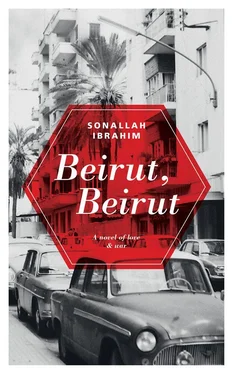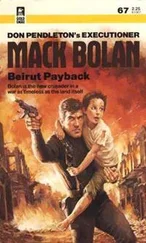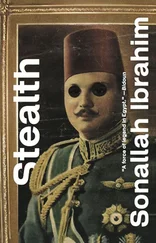Main headline of a third newspaper: “Liaison council made up of civilian and military experts representing NATO acts in the operations room of the Lebanese Ministry of Defense.”
Tripoli. A press conference in the city’s public hospital convened by Captain Iskender Nicola al-Maalouf. “I have been given a mission,” said al-Maalouf, “by Jules Bustani, head of the Deuxième Bureau, along with other officers, to throw bombs in scattered locations in Tripoli for the sake of fomenting discord.”
Egypt’s al-Ahram newspaper. Main headline: “Vice President Hosni Mubarak announces that it was the Communists that precipitated the events in Lebanon, and that there is no national movement, but rather merely a cover for international Communist goals.”
Cairo, the People’s Council Building. Dr Sufi Abu Talib, president of the Council, confirms that there is a directive from the “believing president”, Anwar Sadat, to make Islamic sharia a basis for the nation’s laws, so that it applies to non-Muslims. He tells a journalist that there is a bill coming to the Council concerning “apostasy rulings”, that will condemn to death by hanging anyone who leaves Islam.
Beirut. Representatives of the warring parties sitting around a table. The attendees exchange lists of the names of those who have been kidnapped. They use the phone to arrange the release of large numbers of them. They all explain to reporters that they have nothing to do with the incidents of kidnapping.
A Lebanese newspaper headline: “Israeli force crosses the borders, erects a barricade and seizes Lebanese citizens.”
A circle around a paragraph in the Washington Post : “The Lebanese left emerged from the most recent battle in Beirut militarily stronger, but less cohesive. In seven months of fighting, it was able to achieve a clear victory over the Phalangists.”
Rashid Karami to reporters: “The ratio of Muslim representation in parliament must be adjusted, and made half.”
Lebanese radio: “To our families: We are fine. Please reasure us that you are also fine.”
Title card:
The first estimated numbers of victims in the battles: 8,000 killed, and 40,000 wounded.
Antoinette wasn’t in her office when I went to see her the next day. The door was closed, so I was forced to wait for her in the editing room. I spent the time reading newspapers and magazines. Then I pulled the telephone over to where I was sitting, and reached into my top jacket pocket where I usually keep my notebook. The pocket was empty, so I searched the rest of my pockets, and in my carry-on. I suddenly remembered that I had put it on the bedside table when I was getting dressed, and left it there.
Antoinette arrived an hour later, accompanied by a handsome young man two or three years younger than she. Her face was flushed with emotion. She apologized for being late, and introduced her companion as a Syrian artist. Then she went to make coffee.
The young man had with him a petition directed at the Syrian government demanding that it release a number of leftist intellectuals who had recently been arrested in Damascus. There were a number of signatures beneath the petition. He asked me to add my signature, so I did.
We drank coffee, then we carried the film canisters to the editing room. The young man left us so he could keep gathering signatures, and we set to work.
The Second Part of the Film
The front page of Lebanon’s an-Nahar newspaper. A photo of President Ford. The main headline: “US president says: ‘The United States will do all it can to preserve freedom and democracy in Lebanon.’”
The New York Times . A circle around a paragraph from an article: “… Western arms are inundating Lebanon’s right wing, and they are being financed by means of the Maronite Church and Saudi Arabia.”
Beirut Airport. Couve de Murville, the French envoy, walks down the stairway from an airplane.
A circle around a paragraph from the French magazine, L’Express : “France, sponsor of the pact, is coming today to confirm that it hasn’t abandoned the Christians.” Another paragraph from the same article: “The French envoy alludes to the Palestinians’ responsibility for Lebanon’s crisis.”
A page from a Swedish magazine with a photo of several young men in beards, in white robes, who are chasing other young men in shirts and pants. One of the bearded men brandishes his “deerhorn”-style knife. In the background, the Cairo University clock tower appears. The camera focuses on a caption below the photo, as its Arabic translation appears on the screen: “A Double-Edged Weapon.”
A circle around a paragraph from the same page, with its translation on the screen: “Anwar Sadat listened to the advice of his millionaire friend Osman Ahmed Osman, and delegated him and governor Uthman Isma’il to arm several Muslim extremists, with whom he could intimidate his opponents and curry favor with the Islamic movement in the country. What Sadat forgot is that knives are double-edged swords.”
The front page of an Israeli newspaper. A photo of Shimon Peres, Israeli minister of defense, beneath a headline taken from a statement by him, saying: “The Lebanese Civil War is a religious war and proof of the impossibility of establishing a Palestinian state in which all religions have a share.”
The Lebanese newspaper, al-Nahar . A top front-page headline: “The Kaslik Council urges a declaration of Lebanese neutrality toward the Arabs and Israel.”
A squadron of Israeli planes circle at low altitude over fig and olive orchards. Other squadrons pass over the refugee camps flying Palestinian and Lebanese flags.
The main headline of al-Safeer : “30 Israeli planes fly over southern Lebanon. 60 killed in the refugee camps and villages and 140 wounded; 70 homes destroyed.”
The United Nations building. A meeting of the Security Council. In front of one of the seated people is a PLO banner.
An American broadcaster, speaking quickly: “For the first time, the PLO, despite vehement American opposition, is participating in Security Council discussions concerning Israeli hostilities.”
Al-Safeer . A photo of Archbishop Hilarion Capucci. The headline says: “Capucci goes on a hunger strike in prison.” Another headline: “A smuggled letter from Capucci in prison.” A third headline above the text of the letter: “To the people resisting in the south: we are the same as ever, Palestine is in our heart.”
Damascus. Pierre Gemayel ascends the staircase of the presidential palace.
Title card:
On the same day…
East Beirut. A stream of speeding cars continuously honking their horns, heading toward the Museum where the crossing point to West Beirut is located. Pedestrians are running. Several gunmen in black clothes are chasing them. Pop music blares from radios.
Sahat al-Burj Square. Fruit and crates of Pepsi and 7-Up are scattered in the middle of the street. Men are running. One of them huddles into his clothes for warmth. Another has his head covered with a Russian fur hat. A third has on the common white skullcap worn by Muslim men. In the background, the cinema is showing the Egyptian film, Keep Those Men Away from Me, Mama .
Title card:
Black Saturday. On Saturday, December 6, 1975, after a period of relative calm, the Phalangist militia dispatched its fighters to Martyrs’ Square and Bab al-Idris. They set about kidnapping dozens of people: they killed most of them, then carried off the rest to their party’s centers of operation, and massacred them in front of the doors. They started attacking government offices, especially the electric power company, where they murdered more than 200 Muslims. They also attacked the harbor, opening fire on the dockworkers and then throwing their corpses into the sea.
Читать дальше












